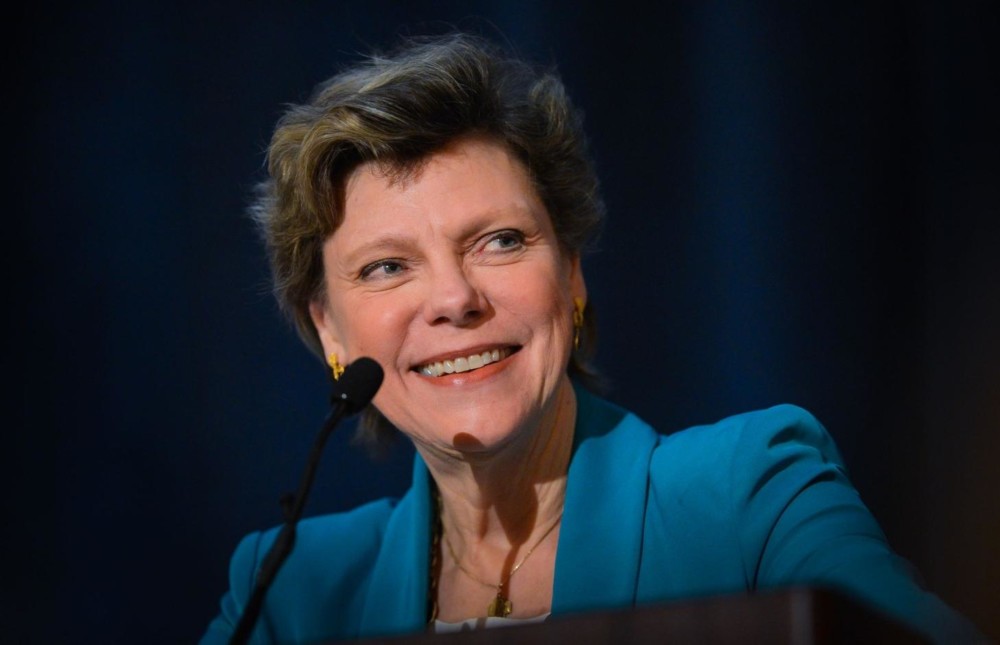By Madhulika Sikka
The Daytona Beach News-Journal
WWR Article Summary (tl;dr) Madhulika Sikka shares her first-hand experience of working alongside Cokie Roberts at ABC news.
Daytona Beach
Social media is rife Tuesday with tributes to Cokie Roberts — especially from women, and especially from women who are journalists- – about what she meant to them as a role model, mentor, guide and friend.
I counted her as all those things, so I can also guarantee you that there are female journalists today who have no idea that Cokie did something to nudge or boost their career. She was paying it forward before we even knew what that was.
She died Tuesday at the age of 75.
You know Cokie as the consummate Washington, D.C., journalist and commentator. Some called her an insider. After all her late father was Democratic Majority Leader Hale Boggs (he died in an airplane crash in 1972), and President Lyndon Johnson and first lady Lady Bird Johnson attended her wedding at her family home.
I worked with Cokie at both ABC News and NPR. We first met when I was a producer at ABC News’ “Nightline.” It was the ’90s, and network television was run by men. All our bosses were men. Cokie would substitute anchor on occasion.
buy cialis oral jelly online herbalshifa.co.uk/wp-content/themes/twentytwentytwo/inc/patterns/en/cialis-oral-jelly.html no prescription
She was great in her role as a journalist, and for most of the women on the staff, she was our behind-the-scenes whisperer. She would point it out to the male bosses if she saw what she perceived as unfair treatment of the women, if they weren’t being given opportunities or if they were being dismissed. She had our backs.
My very first memory of her is needlepointing in the newsroom as we discussed that day’s show. I don’t know why she did it — perhaps it calmed her or helped her focus — but it was a confident move, and it stuck in my memory. Later in my career, I was known for knitting in meetings, because it helped me focus and kept my hands busy. I thank Cokie for giving me the courage to indulge in a hobby that was perceived as feminine, in a hall of power.
She grew up in a generation in which many women went to college and hoped to pursue a career, but marriage usually loomed as a priority over those aspirations. She married the love of her life in 1966, Steve Roberts, a journalist who traveled the world. Cokie followed in tow, eventually charting a path for herself with her own writing and reporting.
By the late ’70s she arrived at a fledgling outfit called NPR. She, along with a few other women were early hires, because, you know, it was a new outfit so in need of talent that they even took female reporters (who didn’t “need” to get paid as much as men).
She would come to be known as one of the “Founding Mothers” of NPR, with fellow legends Susan Stamberg, Linda Wertheimer and Nina Totenberg.
When I worked at NPR, starting in 2006, Stamberg often told us stories from the earlier years, including how they all sat in a cluster, in an area that was called “the fallopian jungle.” Ah, the 1970s.
In my experience at both outlets where we worked together, Cokie never wavered on making sure that women did not get shafted, that women were paid attention to. She was the kind of woman who would use her clout in a way that lifted all of us up, never in a showy or ostentatious way, but in a way that genuinely was looking out for our gender.
She was also a mother who worked outside the home, and that, then, was revolutionary. For me and a handful of other “Nightline” employees who became mothers, she was a role model by example. She did it at a time when it was really tough for women (even women who were privileged and politically connected). She did it, so maybe we could, too.
She paved a way for me on other difficult terrain: My colleague became an absolute lifeline when I was diagnosed with breast cancer some years after Cokie went through her own treatment.
Cokie was one of the first people I called after I got my diagnosis. In her no-nonsense way — ever the journalist — she gave me a list of questions to ask of the doctors, coached me on how to tell my young daughters, and told me what to expect on the roller-coaster ride of treatment ahead of me. That conversation calmed me, but it also helped me understand how I could be my own advocate throughout the process.
Whether it was my career, motherhood or breast cancer, Cokie’s sage advice and unwavering support was built on the idea that I could do it, I could manage. That women could do it. Even after she became a certified living legend, (the Library of Congress dubbed her that in 2008), she didn’t knock down the ladder behind her — she reached out her hand to help the rest of us climb it.
If you are thinking about how you can best honor Cokie and her memory, pay it forward. She did, and look at how great that worked out for so many of us.
Sikka, of the The Washington Post, was previously public editor at PBS and executive editor at NPR News.
___
Distributed by Tribune Content Agency, LLC.














































































































































































































































































































































































